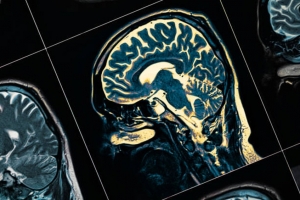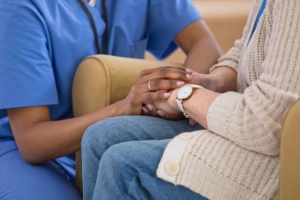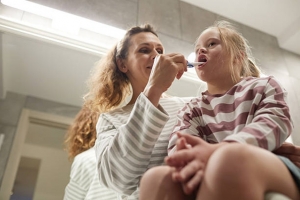More than 120 Labour back-benchers have placed their names on a “reasoned amendment” designed to halt the Universal Credit and Personal Independence Payment Bill at its Commons Second Reading next week. If the Speaker selects the amendment and the other opposition parties fall in behind it, ministers could lose the vote - an outcome that would stall the flagship welfare overhaul.
The dissenting MPs argue the Bill fails basic tests of fairness and compassion. Their text says it lacks a credible plan to give disabled people personalised help into work, was drawn up without meaningful input from those affected, and rests on flimsy evidence. Departmental analysis, they note, forecasts that 250,000 more people, including 50,000 children, would be pushed into relative poverty. The amendment also warns that tightening functional descriptors will penalise those with fluctuating mental-health conditions or other “non-visible” impairments, undermining dignity and independence.
Downing Street insists there is a “moral case” for change, describing the present welfare model as unsustainable. Measures set out in the recent green paper target savings of £5 billion by 2030 through adjustments to Universal Credit, Employment and Support Allowance and PIP. The Prime Minister argues that without reform future support could collapse altogether.
Disability organisations and anti-poverty campaigners dismiss that narrative. They accuse the government of rushing ahead with austerity-style cutbacks while withholding detail of how assessments will change. With so many unknowns, opponents say few MPs could endorse the legislation in good conscience, warning that once again disabled and working-class households are being told to shoulder the burden.
A new set of “Healthy Living Toolkits” has been released by the Leicester, Leicestershire and Rutland Learning Disabilities and Autism Collaborative to help people with learning disabilities enjoy better nutrition, hydration and physical activity. By tackling lifestyle factors linked to serious illness, the resource aims to narrow the long-standing health gap faced by this community.
Data show that individuals with learning disabilities are far more likely to develop conditions such as type 2 diabetes, heart disease, respiratory problems and some cancers. Locally, 11 per cent are underweight while 33 per cent live with obesity, underscoring the need for tailored support that encourages healthy choices and routine monitoring.
Senior strategic dietitian Noor Al-Refae, who led the project, said persistent calls for a single, easy-to-navigate guide inspired the work. Separate versions have been produced for GP teams, paid carers, family carers and people with learning disabilities themselves. “Providing clear, relevant information means we can prevent avoidable illness and help people live longer, healthier lives,” she explained.
Each toolkit sets out role-specific advice, practical meal tips and simple exercise ideas, while promoting accessible community facilities such as wheelchair-friendly scales. The full collection, including an easy-read edition, is available free of charge on the Leicester, Leicestershire and Rutland Health and Wellbeing Partnership website.
Chancellor Rachel Reeves has mapped out the next three years of Whitehall funding, promising a 3 per cent annual rise for the NHS - about £29 billion extra overall - and a renewed push to anchor services in local communities. Money will train thousands more GPs and create millions of additional appointments, a move health leaders say is vital as rising numbers of people live with complex physical and mental conditions.
Social care wins some help, chiefly for children: £555 million from a Transformation Fund to keep more families together and £560 million to modernise children’s homes and foster places. Adult provision is less clear-cut. Up to £4 billion could flow into councils via the Better Care Fund by 2028-29, but ministers are waiting for Baroness Casey’s commission to recommend deeper reform. Critics warn that, without urgent cash, services will continue to buckle.
Education fares better. Core school funding climbs by £4.7 billion in cash terms, with a chunk reserved for expanding free meals and covering next year’s teacher-pay deal. Reeves is also pledging £2.3 billion a year for repairs plus £2.4 billion to rebuild more than 500 schools, while a forthcoming White Paper will overhaul the special educational needs and disabilities system. A further £1.2 billion will widen apprenticeships and training.
Housing gets the largest single headline: a £39 billion decade-long commitment to social and affordable homes - the biggest pledge in half a century. Disability groups welcomed investment in children, SEND and the NHS but condemned the absence of stand-alone adult-care funding, arguing that without a solid settlement the government’s growth ambitions risk faltering.
Autistic adults are markedly more prone to Parkinson’s disease, with new research showing a four-fold increase in risk compared with non-autistic peers. Swedish registry records reveal that the overlap is visible even after taking account of income, family history of psychiatric illness and known genetic susceptibility to Parkinson’s.
The investigation, led by Karolinska Institutet, analysed health data for more than two million people born in Sweden and tracked from young adulthood onwards. By focusing on diagnoses made before the age of fifty, the team could test whether autism spectrum disorder (ASD) predicts early-onset Parkinson’s rather than the more common late-life form of the condition.
One proposal is that both disorders spring from similar faults in the brain’s dopamine circuitry. Dopamine governs movement and social motivation, so defects in its signalling could conceivably underpin both the motor decline seen in Parkinson’s and the social-communication differences central to autism. “Shared biological drivers are likely,” said study author Weiyao Yin, who hopes the findings push research towards common molecular pathways.
While Parkinson’s before mid-life remains rare – even in autistic groups – the authors urge clinicians to keep an eye on neurological symptoms in autistic patients, especially those already managing multiple health issues or complex medication regimes. The project received backing from the Simons Foundation and the Swedish Research Council.
Almost half of the UK’s unpaid carers have seen their physical or mental health worsen since taking on caring duties, according to new research released for Carers Week. An estimated 10.7 million people are currently affected, with this year’s campaign focusing on the theme ‘Caring About Equality’.
A survey of over 2,000 people by Carers UK revealed that 58% of carers feel disadvantaged when it comes to managing their own health. Alarmingly, 40% of current carers have had to cancel medical treatments, appointments, or therapies due to their caring responsibilities.
Women appear to be more impacted than men, with 64% of female carers reporting health inequalities, compared to 52% of men. Many cited difficulties in accessing timely appointments, a lack of support to attend them, or being unable to afford or arrange alternative care for the person they look after.
Helen Walker, Chief Executive of Carers UK, said too many carers are being left behind. She called for greater government investment, improved workplace rights, and better NHS support to break the cycle of poor health and isolation. “Unpaid carers are often invisible, but we all have a role to play in creating a fairer society that properly recognises and supports them,” she said.
A student at the University of Brighton has designed a hands-on sex education toolkit specifically for people with learning disabilities, aiming to make vital topics like consent, autonomy, and relationships easier to understand.
Created by Sarah McBrearty, a former social worker with more than 20 years of experience, the toolkit uses practical, tactile elements to open up conversations around intimacy, boundaries, and personal safety. It features a gender-neutral body mat with a colour-coded light system to help users express consent, along with 3D anatomical models and textured tools to aid those who learn best through touch. Cue cards and sensory aids also help illustrate topics such as contraception, abuse, and healthy vs. harmful behaviours.
Inspired by her own experiences growing up with undiagnosed ADHD and speech difficulties, Sarah wanted to challenge the lack of accessible resources available to people with moderate to severe learning disabilities. She believes that many traditional teaching tools fail to meet their needs, leaving gaps in understanding that can impact wellbeing and safety.
Sarah hopes her toolkit will be adopted in educational and care settings, from schools to day centres. It will be on display at the University of Brighton Summer Shows and showcased at New Designers 2025 in London this July.
NHS England has released updated guidance to help acute trusts and community health providers better implement the Mental Capacity Act (MCA) 2005 for adults with learning disabilities. The guidance is designed to help frontline healthcare professionals fulfil their legal responsibilities while making reasonable adjustments to support individuals with additional needs.
The document includes tools such as mental capacity assessment checklists and templates for recording best interest decisions, with leadership teams urged to ensure the guidance is well understood and accessible to all staff. It reinforces the importance of collaboration when assessing a person’s capacity - particularly involving those who know the individual best, including carers, family members, and specialist staff.
A key element of the guidance is the two-stage assessment process: first identifying any disturbance in the functioning of the mind or brain, followed by determining whether this prevents the person from making a specific decision, even with support. It also stresses the importance of involving families in decision-making and ensuring they are offered support and advocacy services where appropriate.
However, challenges remain. The guidance highlights ongoing barriers, such as insufficient training, pressures in busy clinical settings, and misunderstandings around conditions and capacity. These issues can lead to poor implementation and undermine the legal rights of individuals with learning disabilities.
A new research project is aiming to improve dental care for individuals with learning disabilities by using creative methods to make dental visits more accessible and supportive. The "Caring Beyond Words" project, led by the University of Plymouth and funded by the NIHR, will explore how art and innovative communication can help transform patient experiences in dental settings.
The initiative will involve collaboration between researchers, individuals with learning disabilities, and healthcare professionals to identify current gaps in care. Pilot schemes will be trialled within dental practices to test new approaches, ensuring they are effective and can be integrated into mainstream services.
Evidence shows that people with learning disabilities often face poorer oral health and are more likely to be hospitalised for dental issues, particularly during childhood. As they get older, their oral health can decline quickly if appropriate support is not in place. This project builds on earlier work by the University that brings together health and the arts to support patients who face barriers to care, including dental anxiety.
Working closely with partner organisations such as Learning Disability England and Cornwall Partnership NHS Foundation Trust, the project will ensure the voices of those directly affected are heard, helping shape more inclusive and responsive dental services for the future.










